LA Opera is pleased to welcome Tehvon Fowler-Chapman, our new Vice President of Connects (the company's educational and community outreach initiative). Tehvon's professional background is just as impressive as his artistic background. He most recently served as the Executive Director of the Debbie Allen Dance Academy in Los Angeles. Previously, he served as the Executive Director of Washington Concert Opera in Washington D.C.
Tell me a little bit about your professional background, the job you were previously at. What was that?
I've been in Los Angeles for all of five months. I just came from Washington DC, where I was the executive director of the Washington Concert Opera (not to be confused with Washington National Opera). We solely focused on concert productions of operas, specifically bel canto. Then I came here to work with the Debbie Allen Dance Academy and help them get into their new home in Koreatown. I worked with staff, worked on fundraising, et cetera… And now I'm here!
And how was that transition from opera to dance?
It's interesting, the only reason I ended up working in opera at all was because I was in dance. I was not a dancer though. I'm actually a percussionist so I do have musical rhythm and I spent time accompanying dancers in my last few years in undergrad. It turned into me becoming a company manager for the African American Dance Company at Indiana University. I spent three years managing members of the company and making sure they get from point A to point B. I then transferred over to be a company manager for Wolf Trap Opera [in the DC suburbs of Virginia].
So, I went from managing dancers to managing opera singers. From there I was able to work with Wolf Trap and in art song with Vocal Arts DC and managing their marketing, social media and helping them develop their digital programming through the pandemic. It all kind of transferred into working with opera because I spent the last few years being so deeply involved in the operatic world.
You mentioned that you play percussion. What instrument specifically?
All of them. I played all of them. I’ve played in a symphony orchestra, orchestra pits, concert bands. One of my dreams at one point in time was to play in the United States Air Force Band. With a band like that, what comes with the territory of being a percussionist is being multifaceted. Being able to play with the symphony orchestra, playing very classical music, and then go to your next gig, which might be jazz or lead percussion or being able to play West African percussion. It's nice for me because I get to experience so many kinds of music, as a professional, which I don't feel that everyone is able to do as much.
What were some of your other dreams growing up? And did you ever imagine yourself to be where you are right now?
Oh man, when I was in undergrad and getting my degrees, my biggest focus was teaching. I wanted to be a band director. I wanted to teach younger students how to play music. Well, how to play percussion specifically, which is what I spent my entire time doing in undergrad: working with marching bands, teaching private lessons, wanting to be a band director and wanting to teach music. That turned into wanting to support artists and wanting to make sure that they, in addition to the audience, are getting a great experience. Like building programs that give people more context, more engagement, more fulfillment out of whatever art form we are trying to present to them. And in this case, it is opera.
Speaking of audiences, as an audience member what has been your favorite opera that you've seen?
Oh wow, that's a hard one! There are so many, so I'm going to do top three. First, Alban Berg’s Wozzeck at the Metropolitain Opera, directed by William Kentridge. It was in 2020 right before the pandemic shutdown. The set was gorgeous, and it was a really great production. It brought out the music while also giving a challenging visual concept—challenging in a good way. The second I would say Gounod’s Roméo et Juliette while working at Wolf Trap. It was my first time experiencing it, it was a production directed by Louisa Muller, and it was one of my favorite performances of all time. My favorite opera of all time to listen to but have never seen live, is Prince Igor by Alexander Borodin. I did not actually get into opera through opera, it was through marching band, and one of the shows that I performed in had all Alexander B's music. Prince Igor has the best music hands down. I even have a set of vinyls for it, a collection of records that I can always go back and listen to.
Do you consider being an artist and a creative interchangeable, or do you think that there's a difference between the two?
I had to challenge myself on that at the beginning of the pandemic. A few friends of mine from Wolf Trap and I started this fundraiser called Artist Relief Tree. We raised, I think, at the end of the day about $2 million and we provided $250 stipends to artists. What we learned about that was the fact that we were thinking, well, if you play or do music, we had very traditional ideas of what art is and seeing the people who came in really expanded my idea of what makes an artist. To me, being an artist and being a creative are very synonymous to me, and my concept of who is an artist, has been expanded exponentially.
There's just so many ways to be artistic and to be creative, even in arts administration jobs. A lot of us are here because we get to bring our own creative and artistic perception to how we do our job. I think that to me, at least, they are very much synonymous with each other and I'm really starting to realize there's no limit to how we can define the term “artist.”
I think also, when you think about how opera is changing and who we are involving more in the conversation and on stage, the concept of what makes an artist within opera is also shifting to be more expansive and more inclusive.
Do you consider yourself an artist or creative aside from being a musician?
I also bake, so I consider what I do there very artistic and creative at times, you know?
One of LA Opera's main goals is to bring diversity and inclusion within the art of opera. What has your experience been like in terms of diversity in the performing arts? Do you see a shift?
What we've seen is a very much needed acceleration of the conversation. Really thinking about who we are and who it is we are trying to reach. I think we've always wanted diverse audiences, but really our perception of how we reach people has changed. We're starting to realize that the communities that have not been historically engaging with opera are not monoliths. It's not going to be the exact same program within every individual within that community or within these communities that we're not reaching.
Part of what makes this job, working with and leading Connects, so exciting, is that I have always wanted to focus on what kinds of operatic experiences people want, as opposed to what we want people to experience. I hope people do come to the opera because our company does fantastic work, but the biggest thing is that we as LA Opera are providing quality operatic experiences for people across Los Angeles, regardless of how they prefer to experience it, and regardless of whether we have the same preferences for it.
To me that is what inclusion really means in this art form, and I think that I'm starting to see more consideration of the audience and of various communities and more of that desire to meet people where they are, as opposed to trying to bring them to where we want them to be. Not putting the burden on those individuals or groups that have not experienced opera, and putting the burden and responsibility back on us to create a well-rounded body of work that represents LA opera.
What do you hope to bring to your position?
What I want to build is our reach and our impact, not just for these programs, but also to build more connections between what we do in and out in the community and what happens here at the Music Center. Coming from a background in which opera had not been in my life, I came through something else that was incredibly meaningful to me. What that tells me is that there aren’t opportunities like that for everyone, so we need to make sure that we create those opportunities. Not for an ulterior motives, but because it is our mission. Making sure that we are looking for those pathways for people, building those bridges for them to have those great opera experiences and find the ways that connect them to opera. So, expanding on the reach, expanding on the impact, but also really expanding on the connections between people's lives and the art form that we're here to present.




